Peter Dutton must reset the Liberal Party before the next federal election
Liberal Party that is in a dire position nationally. The time has come for the Opposition Leader to take risks; to define what the Coalition stands for under him.
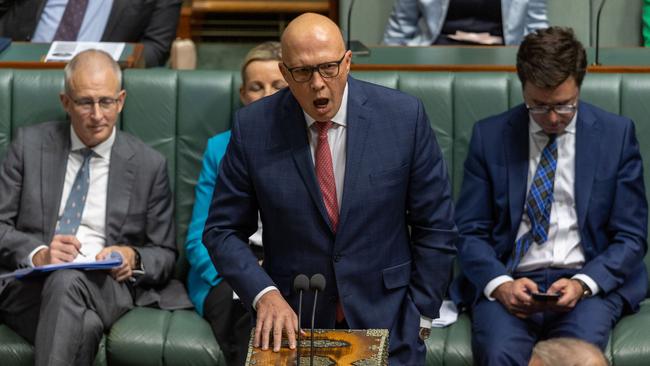
It wasn’t a big step but it was a first step, and it needs to be followed by many more.
As Opposition Leader and Liberal leader, Dutton is carrying the weight of conservative hopes on his shoulders alone in an environment of Labor supremacy, Liberal dysfunction, Nationals divisions, and factional and ideological differences.
Dutton, despite the historical setback of the first opposition by-election loss to a government since 1920 and the loss of a valued frontbencher over the principle of the Indigenous voice to parliament, has managed to hold the federal party together.
But the time has come for Dutton to take leadership risks; to define what the Coalition stands for under him; to strategically regroup after the election loss a year ago; to take the fight to Anthony Albanese, who clearly leads him as preferred prime minister; to produce some policy; and to provide an alternative to Labor beyond simple opposition.
The Prime Minister tagging the Coalition as a “Noalition” hurts Dutton and embeds an impression of negativity from the opposition.
This pressure on Dutton to reset the Liberal brand is amplified by the fact he will face another two by-elections – albeit in safer Liberal seats – as he carries the bulk of the No case argument in the referendum for a constitutional change for an Indigenous voice.
Dutton’s formal response to the budget was the opportunity for him to take that step towards resetting the politics and policy of the Coalition.
There was no rush to produce big new initiatives but there was a strengthening of the commitment to nuclear power as part of the answer to carbon emissions and reliable power supplies. There was a harder line against “Big Australia” levels of immigration and a reaffirmation of popular Coalition policies, including access to superannuation funds to buy a first home.
Rhetorical commitments to core principles such as lower taxation and less government spending as well as a pitch to middle Australia in danger of becoming the “new working poor” were included in the speech. “The Coalition remains focused on strengthening the economy, making sure that our hardworking middle class do not become Labor’s working poor, and keeping Australia safe and secure,” Dutton said.
His argument was that Labor had failed on economic management because of rising inflation: “The government has taken decisions – and avoided others – which has made inflation higher than it needs to be. It often happens when Labor is in power because they can’t manage money. Labor recklessly spends, carelessly cuts and inadequately saves.
“When you hear the government constantly blaming Putin’s invasion for inflation, they are being deceptive. Australia’s inflation woes are of Labor’s own making. Inflation is coming from Canberra. And Labor’s big-spending budget will only fuel inflation and make life harder for millions of Australians.”
But, like the Treasurer, who faced imperatives and little choice in a lot of the preparation for the budget, Dutton’s response was limited by political reality. On particular measures Dutton could not offer opposition – as much as some principles demanded and colleagues might have wished – but he did have the freedom to offer a broader approach on values and economic fundamentals, and to point to legitimate challenges such as migration pressure on housing and the need for cheaper, reliable energy.
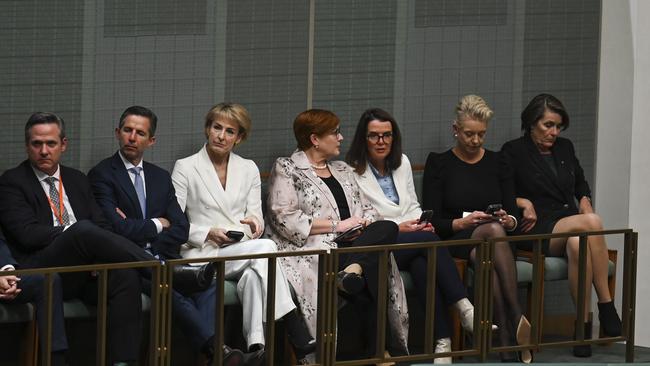
Despite complaining about the inflationary effect of the budget, Dutton still essentially waved through the bulk of Labor’s $14.6bn cost-of-living payments to low-income earners being squeezed by rising costs. After a year of promises of relief for families hit by the worst inflation in a decade and 11 interest rate rises in row, Labor gave those on JobSeeker an extra $40 a fortnight, tripled bulk-billing for GP visits, extended unemployment benefits for those over 55, and provided help for single parents and rent relief. There was also guaranteed funding for the National Disability Insurance Scheme, with a promise to ultimately cut spending by 8 per cent; aged-care funding; and cheaper medicines.
Facing the political reality of not being able to block relief for low-income earners or threaten the existence of the NDIS, Dutton covered his acquiescence with the fig leaves of a proposed amendment that would provide more incentive for working more before getting JobSeeker allowance and a clear explanation of how vital savings on the NDIS were going to be made.
The Coalition even is likely to support the new $2.45bn tax on gas producers to avoid a higher impost being forced on the LNG industry by the Greens in the Senate. There are those in the Coalition who fear the changes to the petroleum resource rent tax on LNG will push investors overseas but, given the changes were first examined under the Morrison government and accepted as the lesser evil by gas producers, acceptance is pragmatic politics.
Aside from specific budget programs, Dutton decided to reject the Prime Minister’s demands for a detailed alternative agenda and instead concentrated on broader cultural issues where he could talk about his experience and beliefs.
Dutton harked to the Coalition’s successful record on immigration and border policy, alluding to Kevin Rudd’s “Big Australia” population plan and the prospect of a migration surge fuelling inflation and making urban congestion worse.
“We all support a well-planned migration program – and that’s the history of Coalition governments. But over five years, net overseas migration will see our population increase by 1.5 million people,” he said. “It’s the biggest migration surge in our country’s history and it’s occurring amid a housing and rental crisis. Australians are struggling to rent or purchase a property now.”
This is a play to overcrowding and congestion fears with a subtle allusion to the successful “stop the boats” campaign. The Howard government showed Australians would accept high immigration if they considered the program was under control and Tony Abbott demonstrated the strength of offering border order. This is an issue without a strict budget price sticker and will appeal to all people feeling the squeeze in crowded cities with high rents.
Although gambling on sports is popular, Dutton also raised another non-budget item by promising to ban sports betting advertising during the broadcast of games. Gambling bans were an issue in the recent NSW election and Dutton offered the ban as part of a promise to make families safer and more secure.
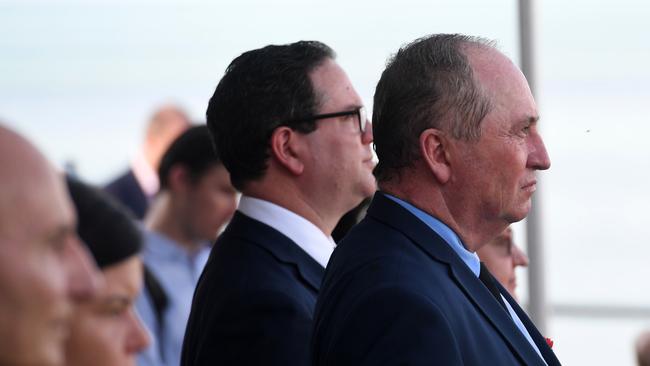
The biggest non-budget item in Dutton’s budget-in-reply speech was a nuclear power challenge to Labor on climate change as part of an extended attack on Chris Bowen’s energy policies.
Declaring any “sensible government in the 21st century” had to include nuclear power, Dutton went a step further in the policy challenge by highlighting Labor’s inconsistency in buying nuclear-powered submarines but not using similar technology onshore to provide reliable carbon-emission energy. To the loudest cheers from his colleagues during the parliamentary speech, Dutton declared: “Next generation, small modular nuclear technologies are safe, reliable, cost-effective, can be plugged into existing grids where we have turned off coal, and emit zero emissions.
“In the 21st century, any sensible government must consider small modular nuclear power as part of the energy mix. Oddly, Labor is happy for similar technologies to power our future submarines. But it refuses to consider the benefits of onshore small and micro modular reactors.”
The language was stronger than his last pronouncement on nuclear energy and linked the possibility of zero-emission nuclear power with the need for gas as a transition fuel for power until renewables can prove to be reliable. “With the government against coal and nuclear, gas remains the only viable firming power. Yet Labor wants gas gone too. It’s undermining gas at every turn,” he said.
Nuclear power is an issue that does not have a budget cost, appeals to the Coalition base and has the political potential to split Labor ranks. Dutton has learned over the years from John Howard how to use a distraction or cultural conviction to deflect attention from himself and cause dissension within Labor.
The heart of Dutton’s budget reply was an appeal to middle Australia, just as it was after the Coalition’s election loss last year, and a reminder that the budget had little for those not on government payments. “This budget hurts working Australians. Worse, it risks creating a generation of working-poor Australians,” he said. His conclusion, after pointing to Australia being just shy of a year since the election, was a question: “Are you better off than you were 12 months ago?” He’s hoping most will say no. That may be a start for him, but it’s only a start.


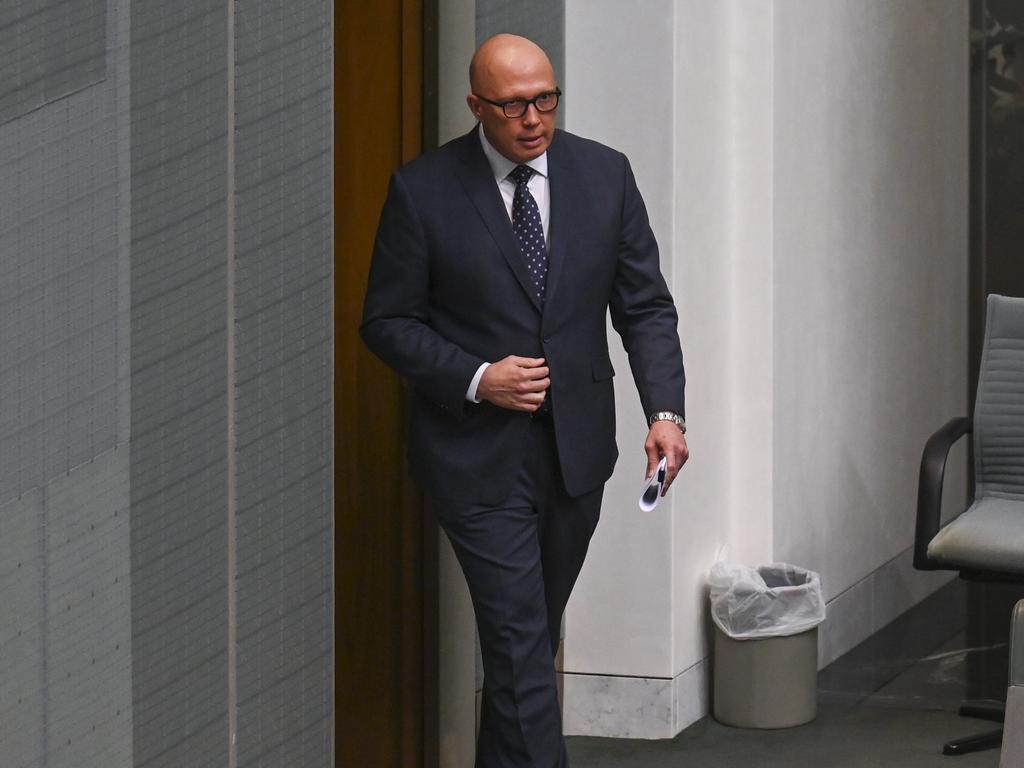
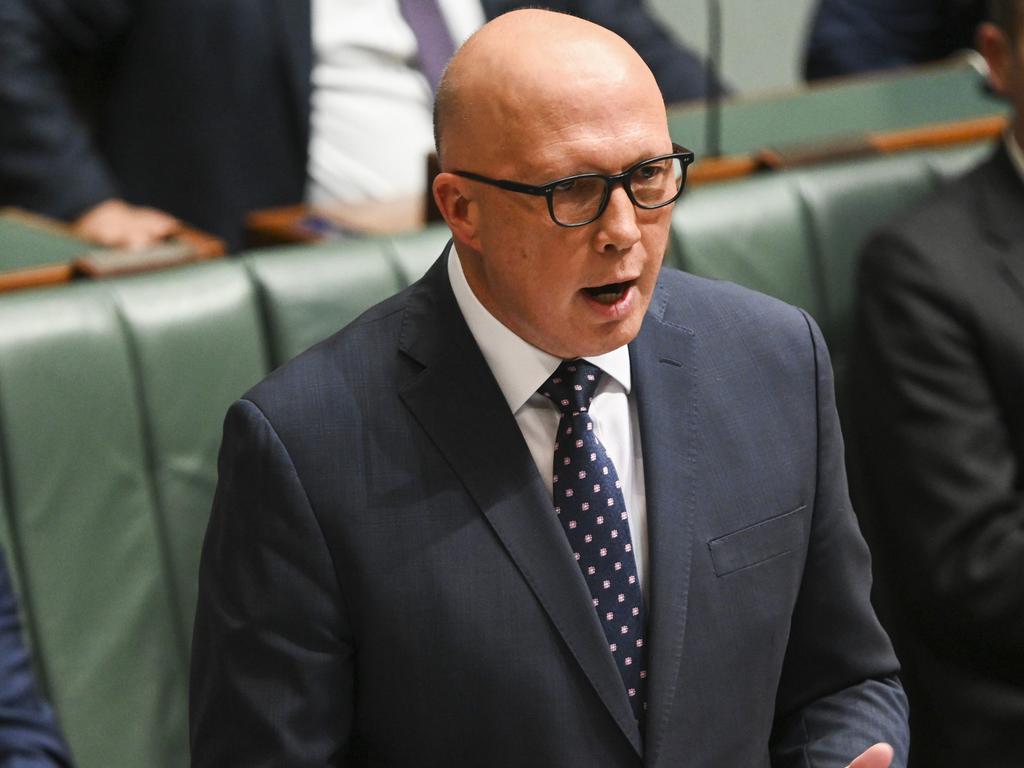
Peter Dutton’s response on Thursday to the budget handed down by Jim Chalmers on Tuesday is the first step in a necessary reset for the political and policy direction of a Liberal Party that is in a dire position nationally as it faces the reality of having to be election-ready federally by this time next year.